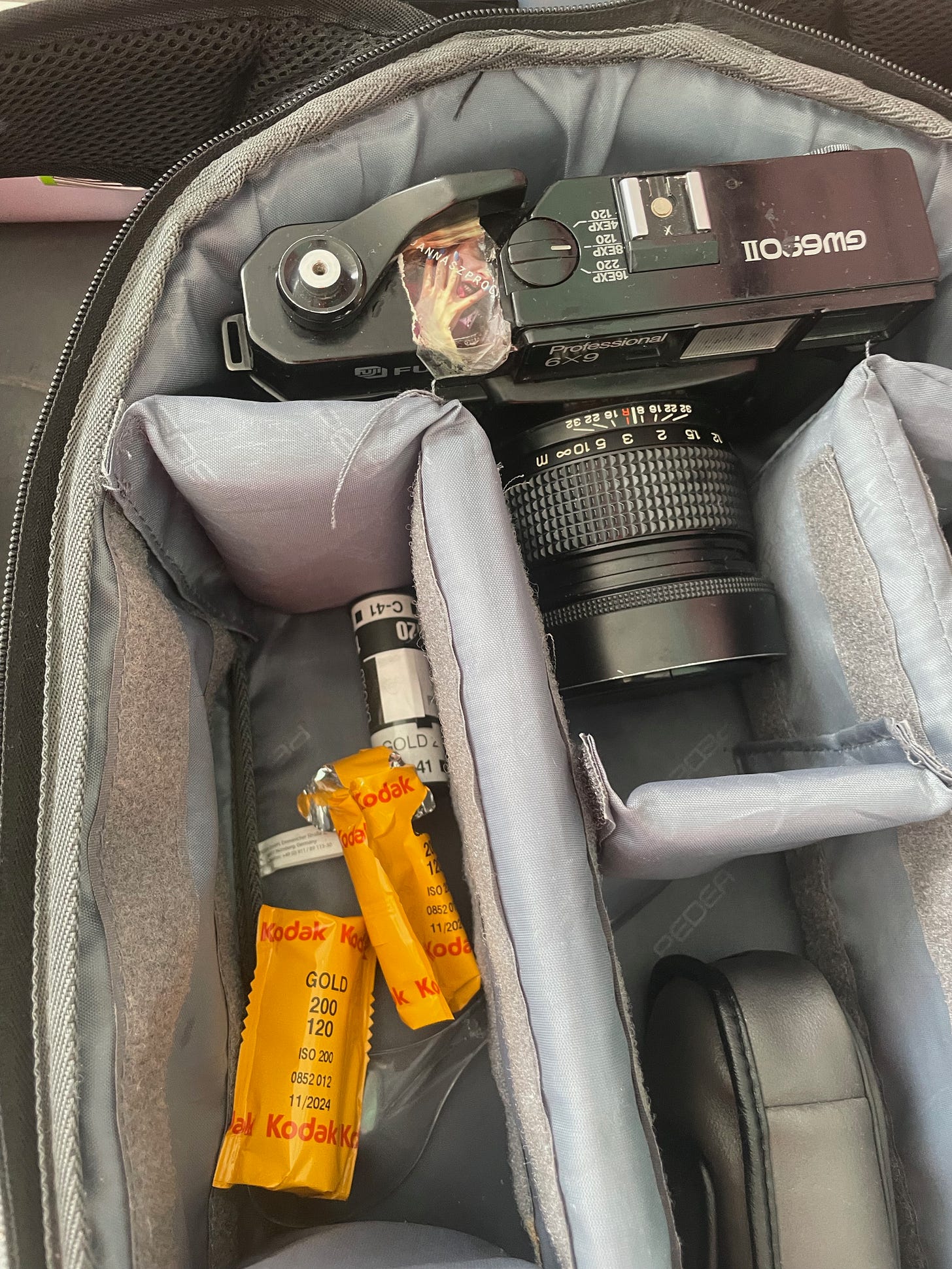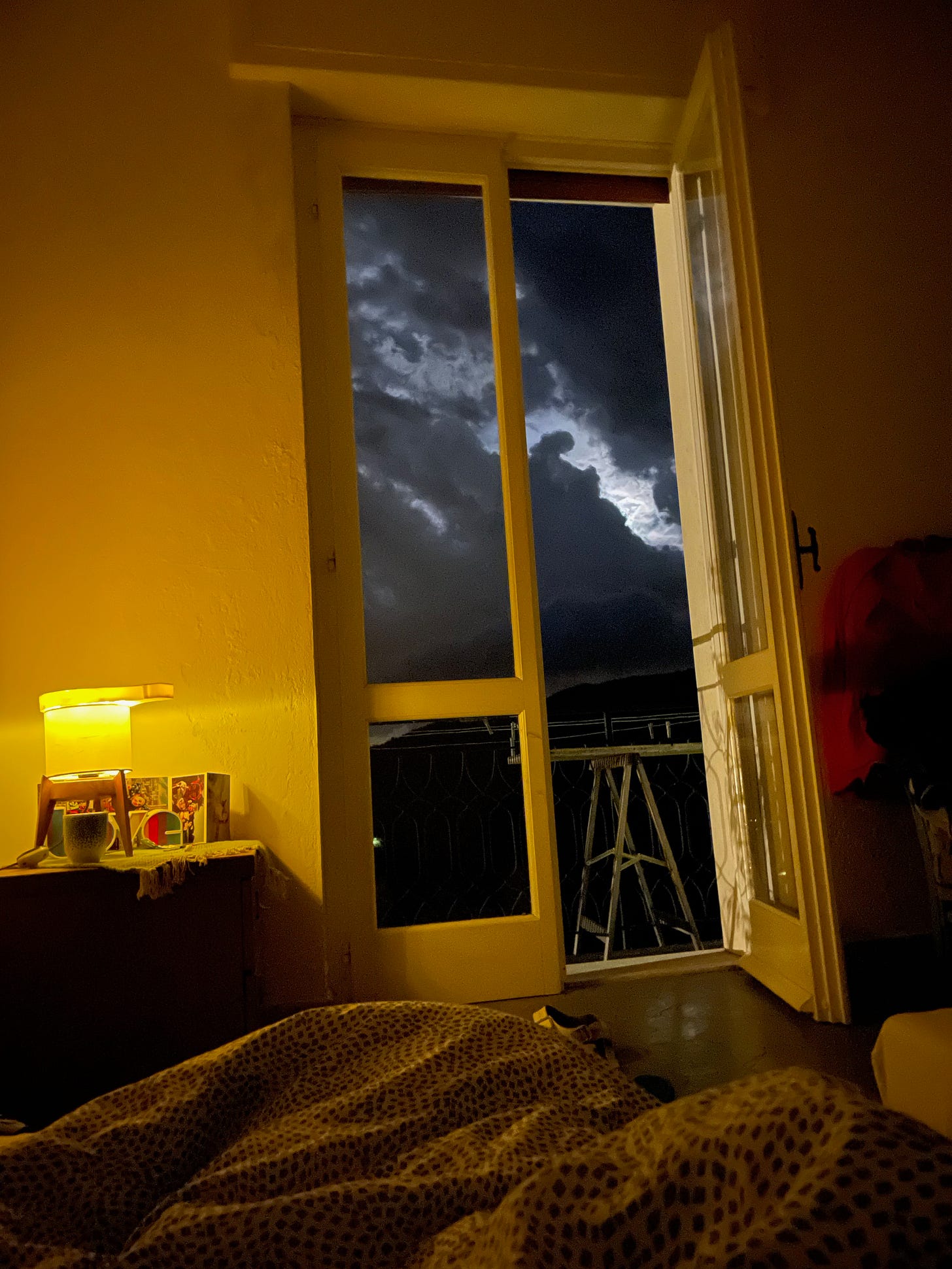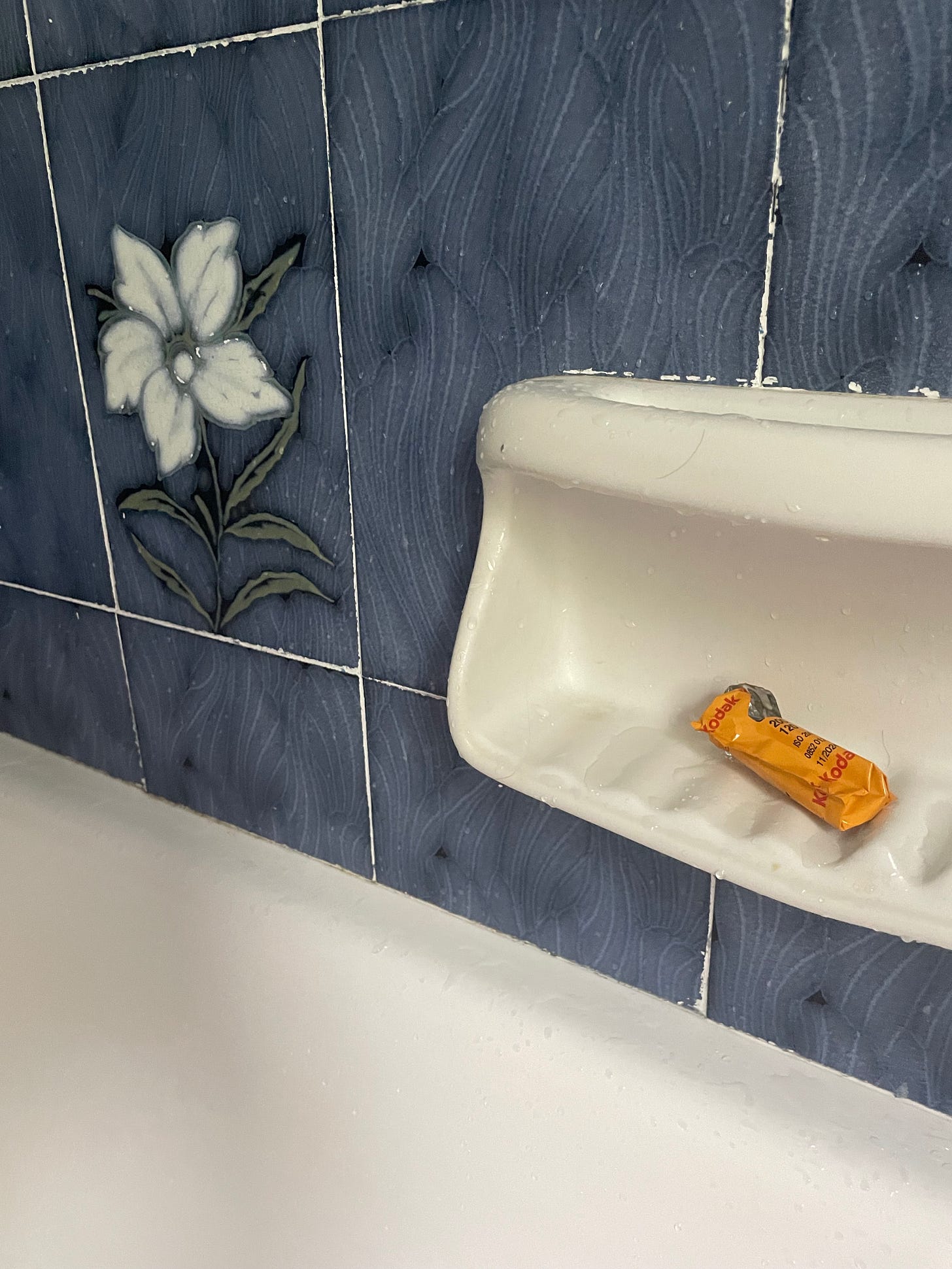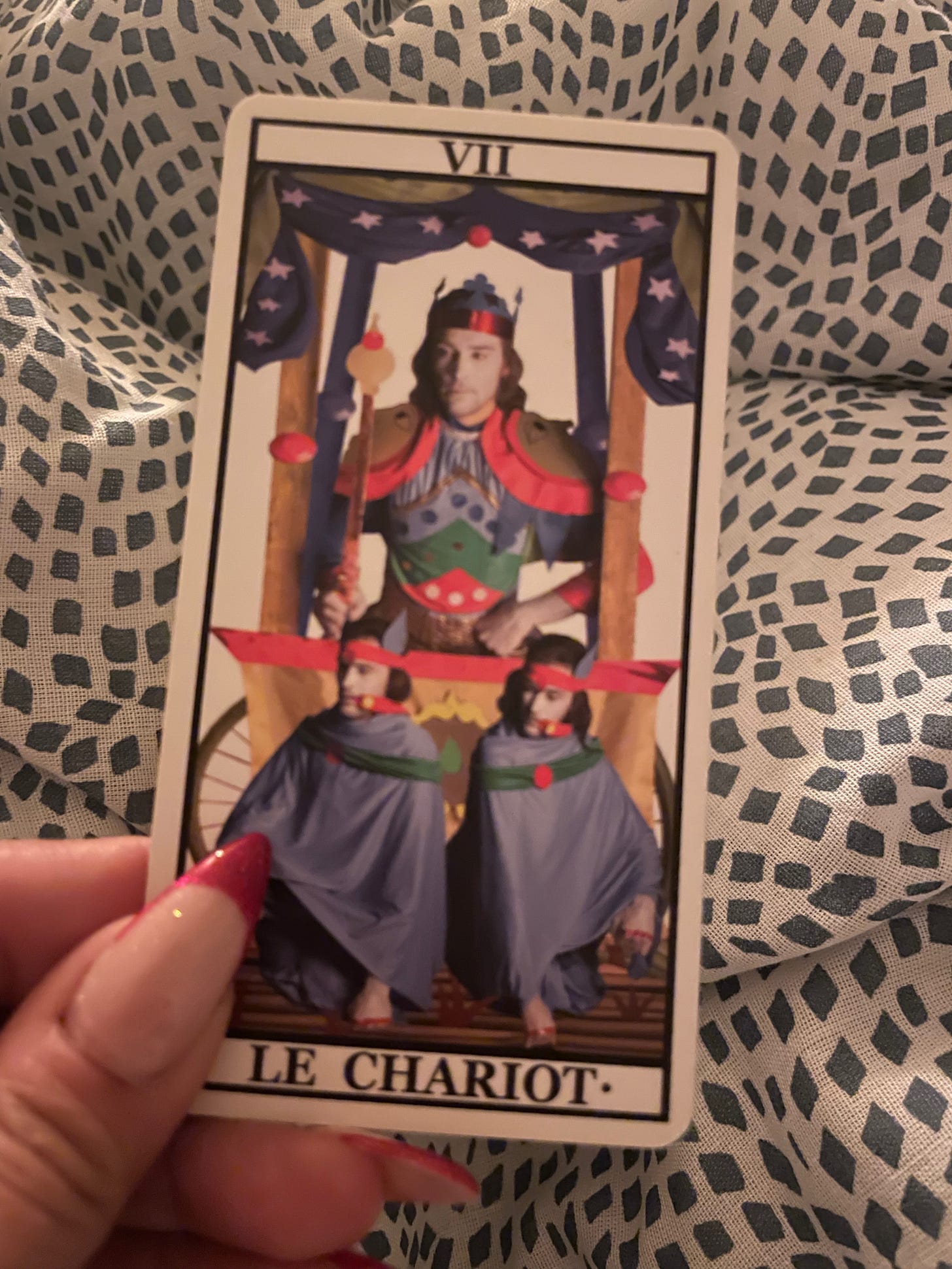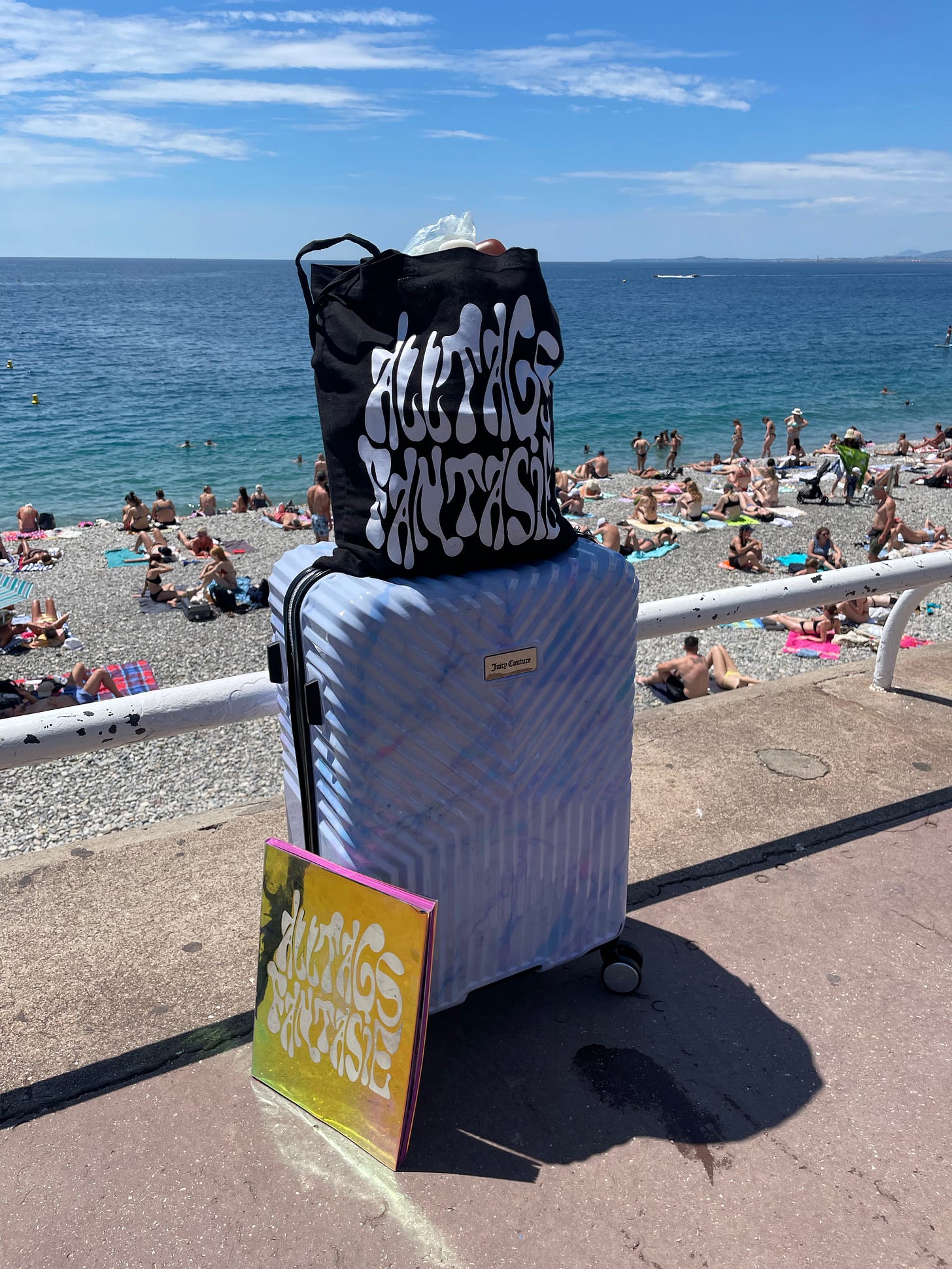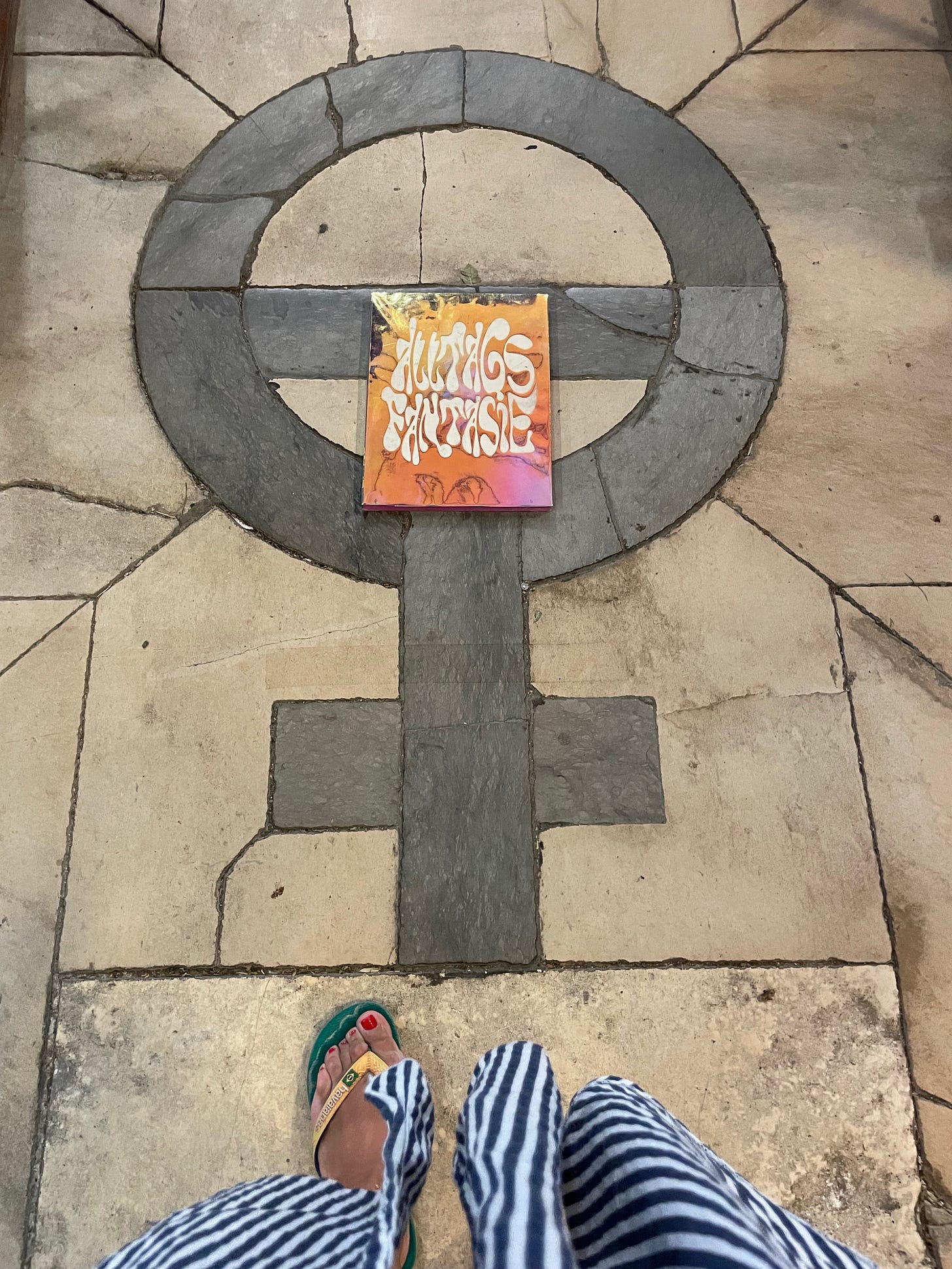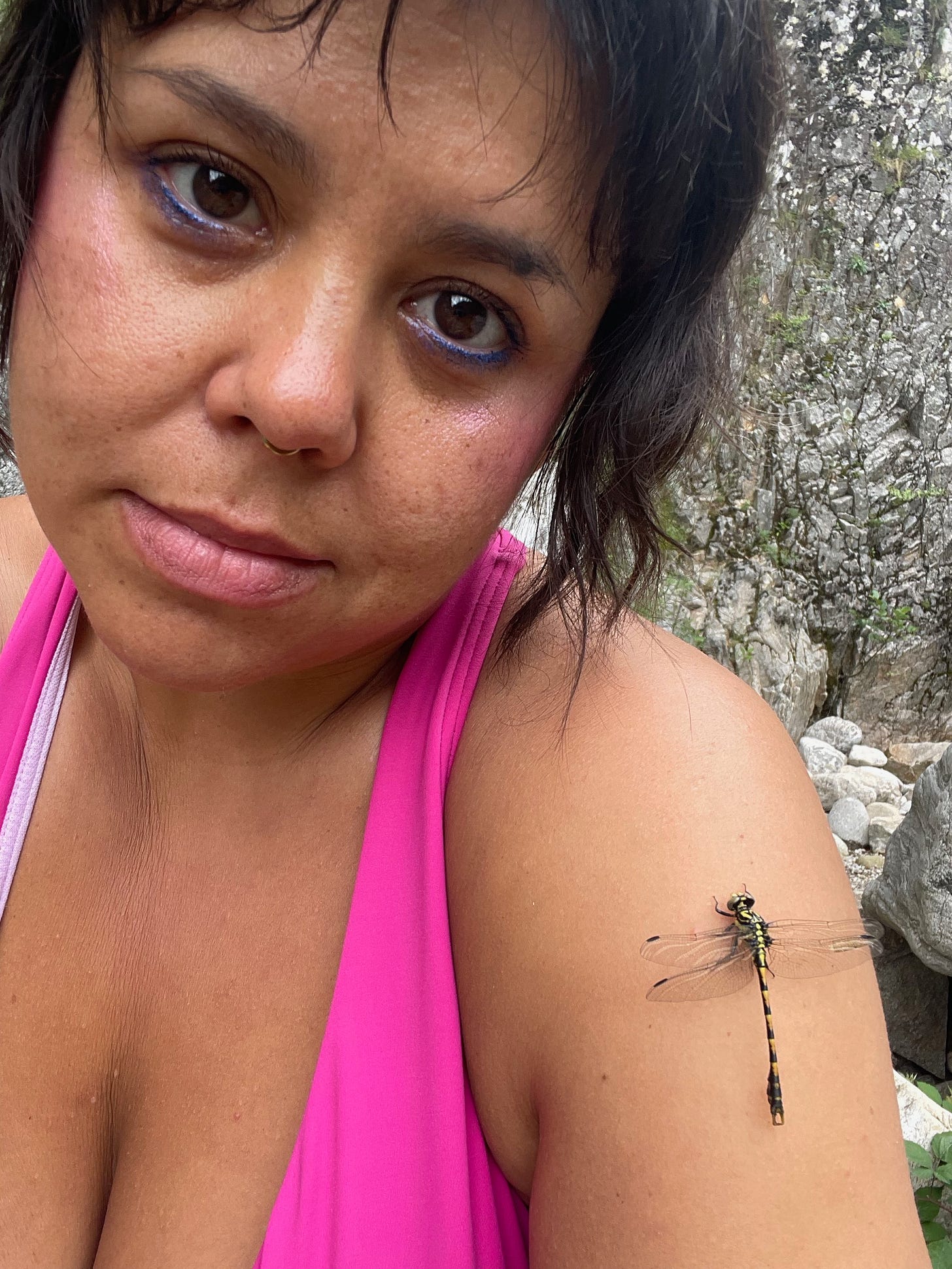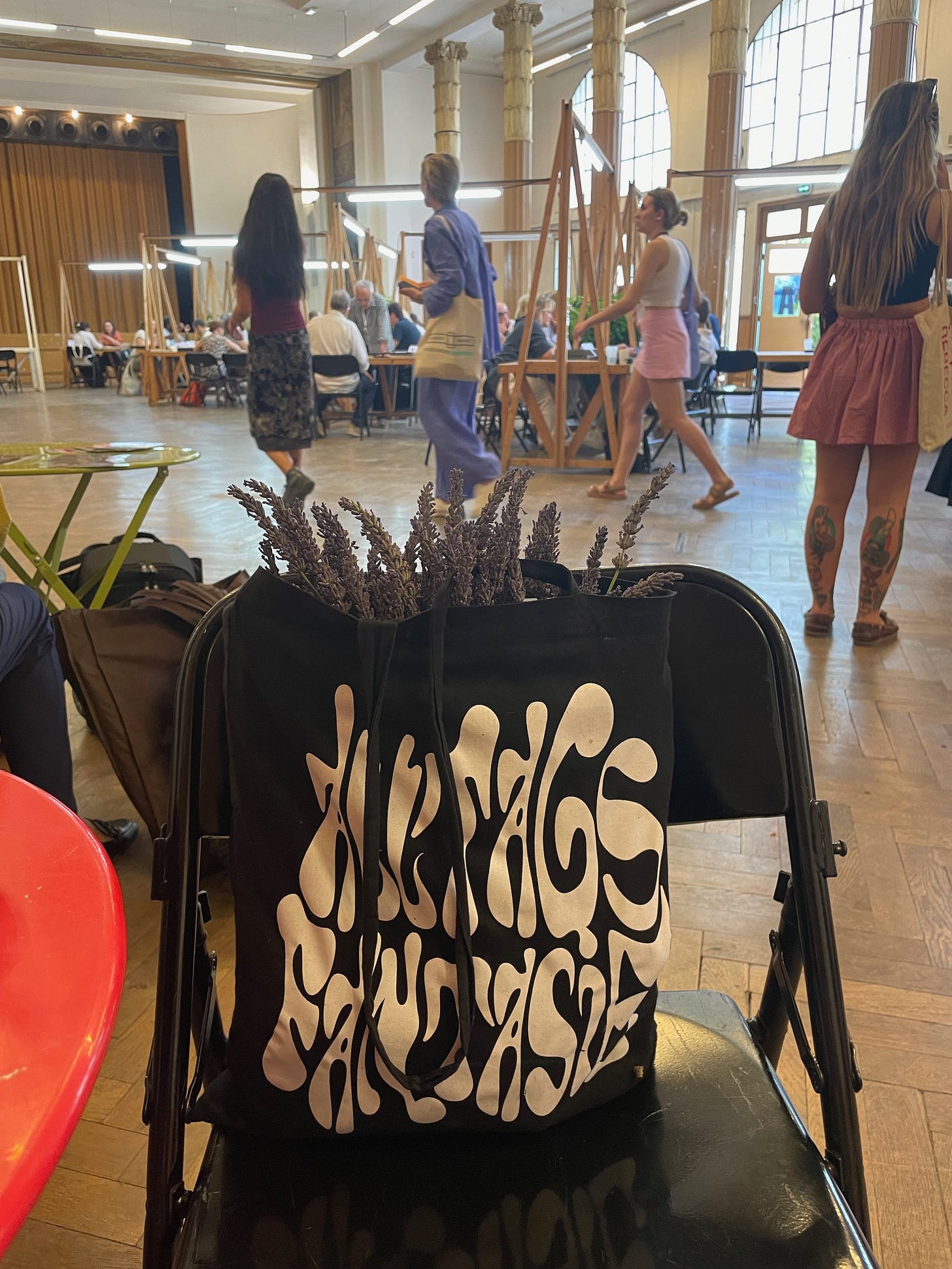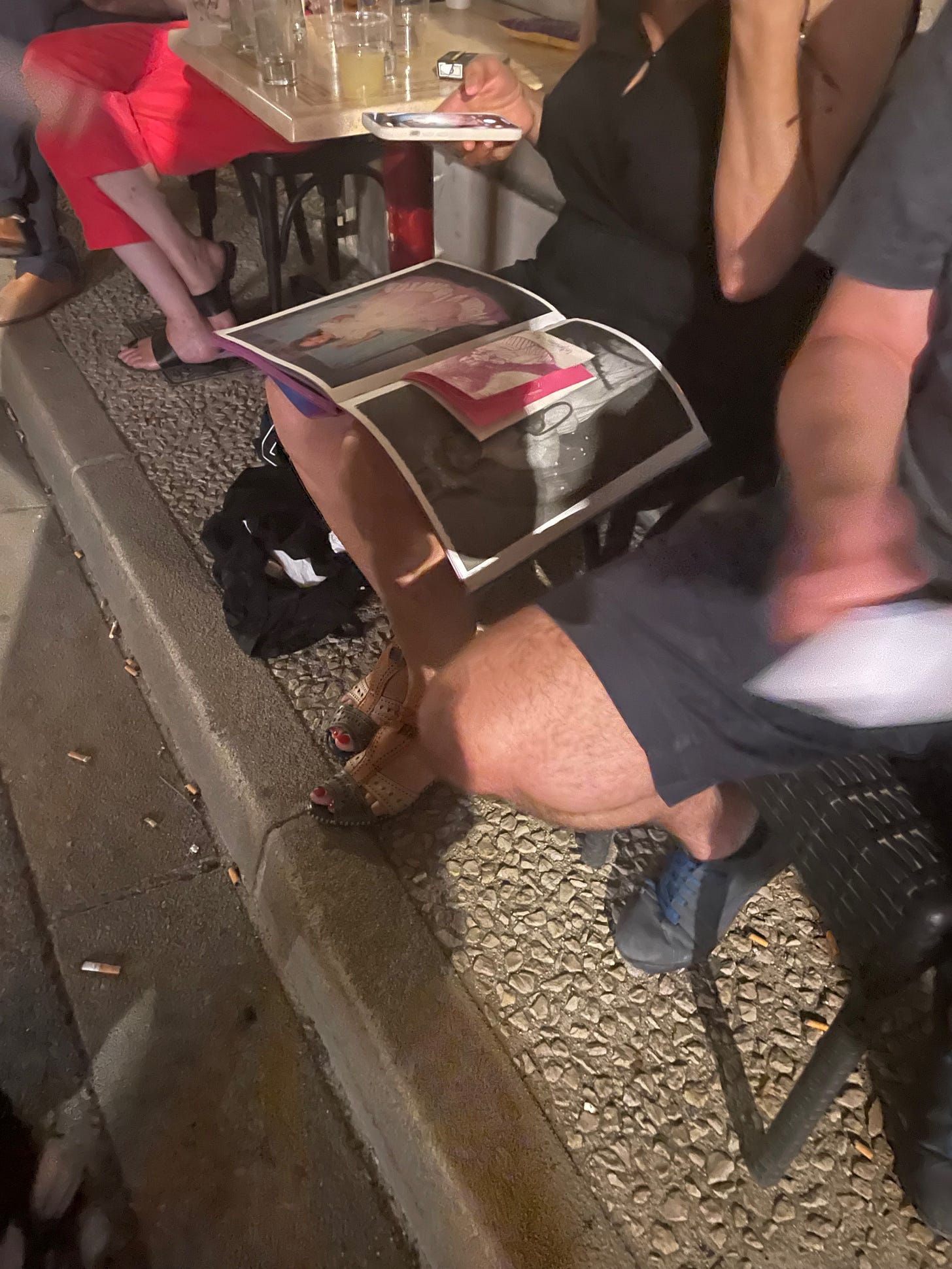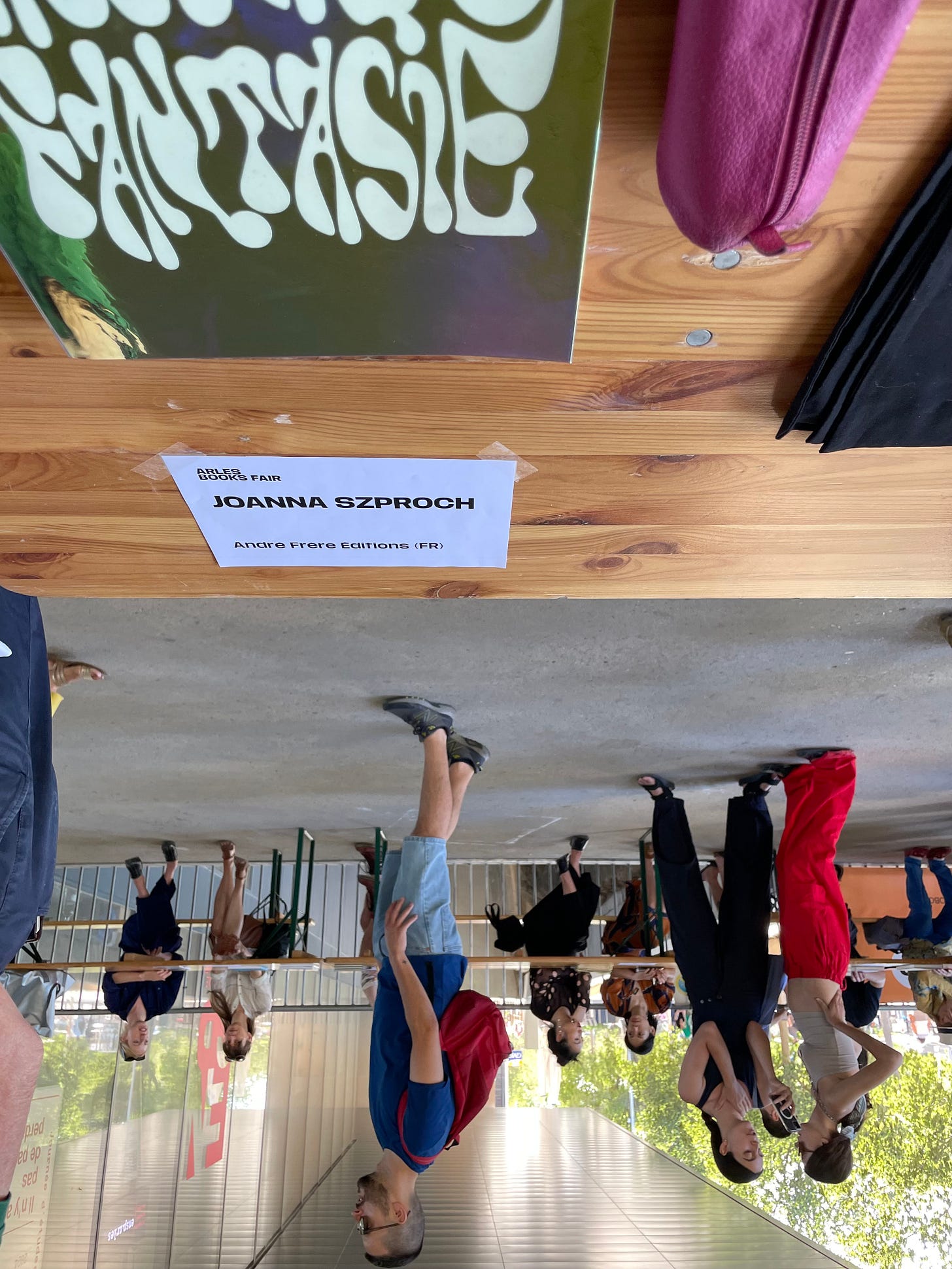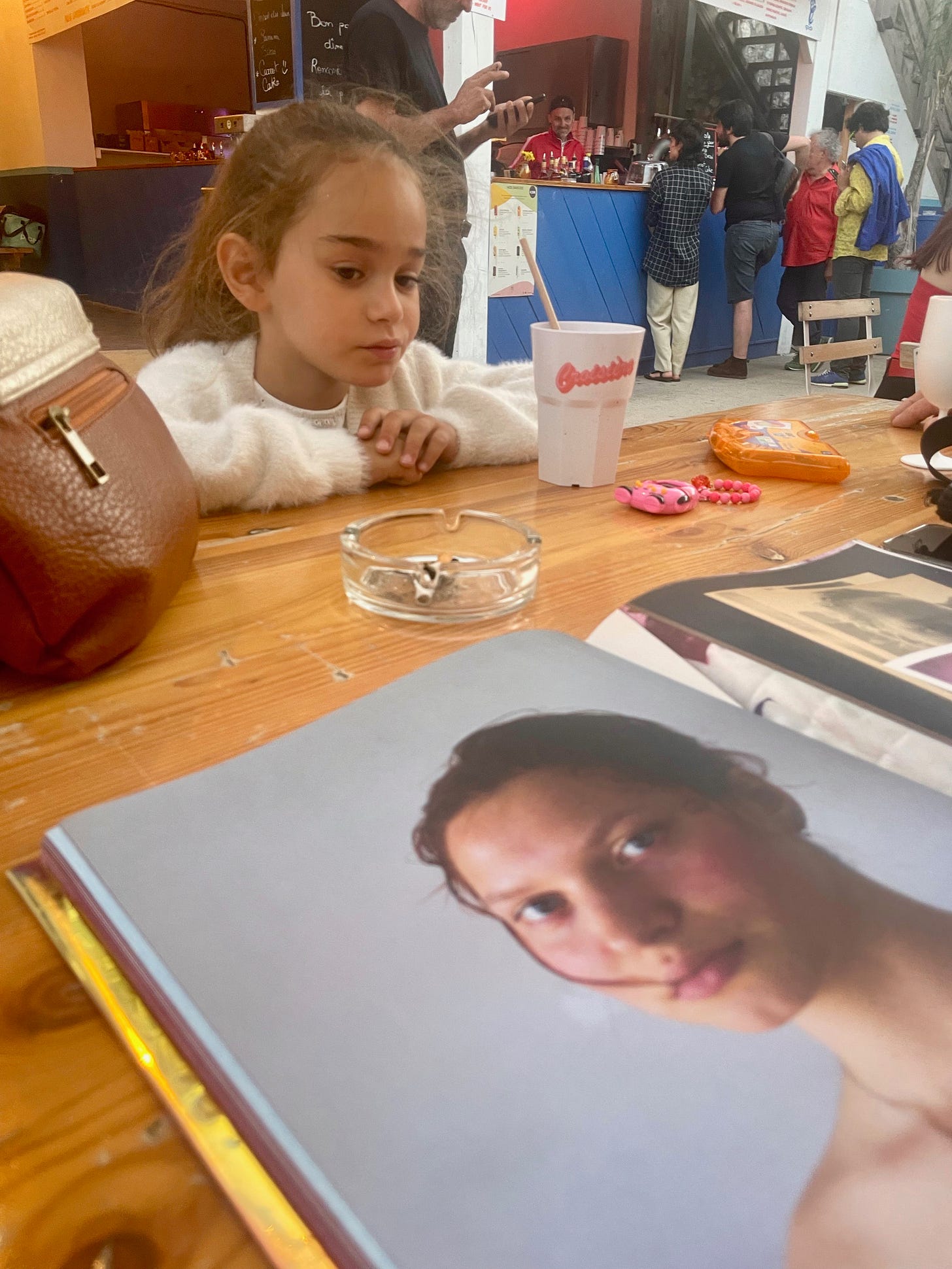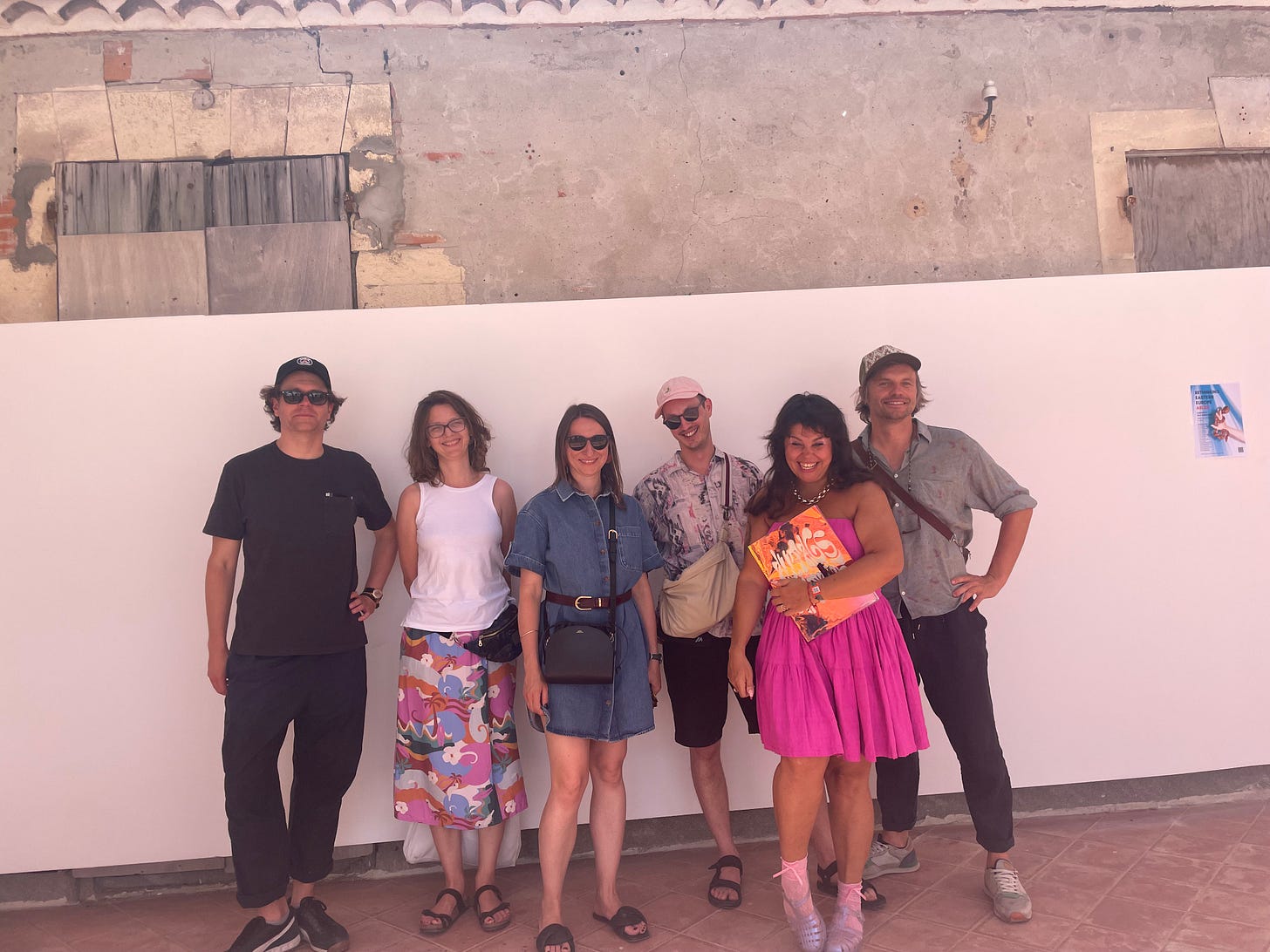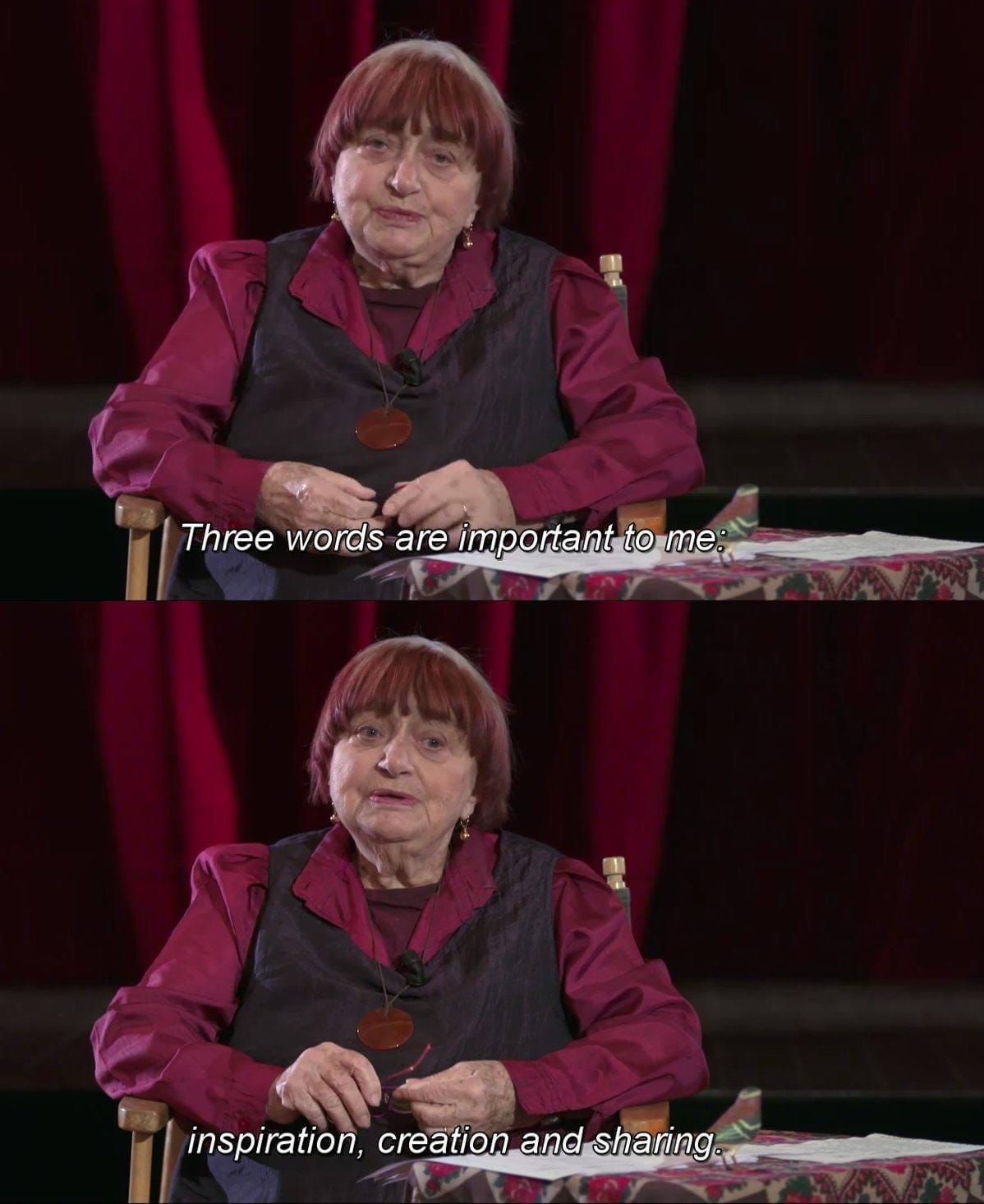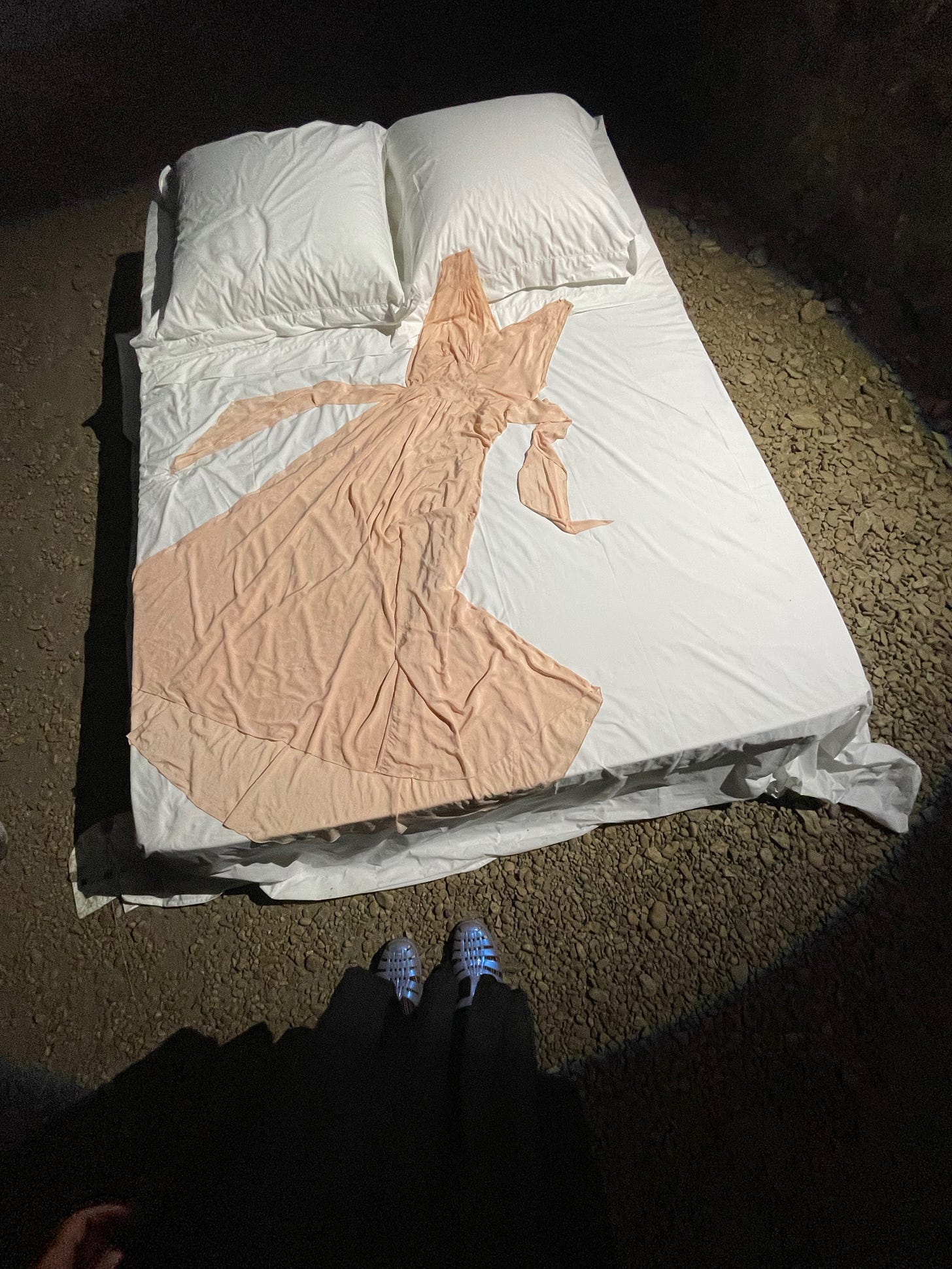In these strange times when people are afraid to share their truths online for fear of cancellation, I decided not to mention the names of the people I talked to. Since I didn’t record anything and everything comes from my memory, I’m aware that there might be some interpretations or projections on my part, and I am not entirely objective. Still, I’ve tried to present it as accurately as possible, based on what I saw and heard.
I can describe myself with many nouns, but ultimately, what defines me is what I have done and experienced, not just what I am. I disdain contempt and admire humility, which I see as a rare trait of truly self-confident individuals. People with true self-confidence are not afraid to admit they might have been wrong.
I'm rushing to write a report about my Mediterranean journey, including a stop at Rencontres d'Arles, and how traveling educates. Each day felt as eventful as a week compared to my routine in Berlin. What strikes me is, people are often very opinionated, especially about politics, and I wonder why. Perhaps it's because an algorithm in the hands of those in power reinforces our beliefs, and influences our thoughts and feelings. These algorithms don't grasp our complex somatic experiences. We are more than our minds. The price we pay for lockdown will be long-lasting, but we won't lose our convivial nature to play, connect and converse.
My first stop was Italy, where I met a lifelong friend from my hometown, Warsaw. We shared the harsh experience at an authoritarian, post-communist primary music school marked by extreme competition, twice-a-year instrument exams, and annual recollections at Warsaw Cathedral. Despite the hardships, our shared "oppression" bonded us deeply. Nearly all 30 classmates stay in touch, many having left Poland, and we still meet regularly. I hope to document this story once I finish my current projects.
My best friend and I inspire and support each other. As a single mom, freelancer, and artist, she's also my money role model. We discussed the drive to grow, the legitimacy of seeking recognition for our artistic achievements in competitions, and my confession that I wish to make it to the Venice Biennale one day. I feel conflicted about my ambitions and efforts in Berlin, which is perceived as neo-liberal in a city with champagne leftism. It’s hard to reconcile this with the idea that education and effort are vital for emancipation. Those middle-class locals with higher education should share their privileges without imposing their lifestyle.
While I’ve been ambivalent about competition, I support fair play. Seeing discarded books in Berlin saddened and angered me. Addressing classism involves recognizing that education, crucial for social mobility, demands effort and can be stressful. We should help those who want it; many need guidance, but some prefer not to be responsible. We should accept this without enabling it. We cannot save people who do not want to be saved; we can only stand by their side and help when they recognize the need for growth.
It’s also nothing wrong to aspire to be a leader. During a summer solstice full moon, I drew the Chariot tarot card, symbolizing mastery over our fate and responsibility for our challenges and successes. The Chariot encourages active participation in life, signifying haste, change, and journeys of self-discovery.
My friend introduced me to her Italian neighbor from Germany, who was impressed by her education and didn't expect such high culture from Poland, having only encountered Polish cleaners before. While likely meant as a compliment, it's important to note that these cleaners might have higher general knowledge than some German graduates who struggle with basic literacy and math. I discussed this with another Polish friend I visited later in France. We talked about how China, after the Cultural Revolution, reduced illiteracy to 3% through compulsory education. Is this forced emancipation or genuine care? Does full liberalization lead to ignorance? These are questions I don't have answers to.
In Poland, Catholic oppression still burdens us, but we resist; it's part of our Slavic spirit. Although I’m not a nationalist, my heritage shapes me. Our geography and history have deeply influenced us, creating an inferiority complex that makes me wary of the Polish mentality, because I’m proud of our rich culture and sometimes miss our romanticism in pragmatic Germany. I believe our epigenetics reflect our ancestors' experiences and shape people differently across regions. Borders are constructs, but genetic differences are real and shaped by the environment—like eagles from different regions, where one may dominate if relocated.
We must remember the paradox of true diversity and sovereignty. While addressing colonialism, we should protect fragile cultures and values, such as human rights and egalitarianism, which are also vulnerable. For instance, indigenous American cultures, nearly lost, deserve preservation. At the Arles women's pool party, a photographer I met in the queue, recommended the book "We Will Not Be Saved" by Nemonte Nenquimo, an Indigenous female leader who has made significant strides in climate activism by protecting rainforests and challenging destructive industries. In her memoir, she tells her story and discusses how contaminating white culture has been to Amazonian beliefs. After Arles, I spoke with a half-Peruvian friend, with whom I made my last stop in France. She shared that she witnessed in the Amazon some wokearitarians driven by colonial guilt, who tried to undo Catholicism that for centuries integrated into the Amazonian identity. This reflects another form of white supremacy. Just leave them alone!
In Arles, on the first night, I’m sitting with my friends from the previous edition. We talk a lot; everyone has strong views shaped by their perspectives. I’ve noticed that while we used to discuss life and personal experiences, our conversations now mostly focus on politics, viewing our experiences through a political lens. Wasn’t it once "the personal is political"? Now, it feels like there’s been an inversion. Everyone advocates against foreign conflict yet not many know how to Communicate Nonviolently.
As we introduce ourselves—“I’m a photographer,” “I’m an artist”—I notice that most of us are women, but the loudest voice is a man from Iran, sitting at the center. He discusses the competition and hard work he endured to succeed outside his oppressive country, arguing that people from less privileged countries must work harder than Westerners, who take their advantages for granted. I see the truth in this; as a Polish female artist, I’ve juggled multiple roles to survive and build a career while moving to a new country with a young daughter—photographer, art director, retoucher, editor, teacher, producer, bookkeeper, content creator, occasionally making extra money with babysitting and cooking. Despite his empowerment and a new position in a more equal society, his patriarchal attitude remains evident, overshadowing the female voices at the table. This highlights the challenge of overcoming ingrained male privilege.
I’m learning not to feel the need to prove I’m right, especially when others are rigid in their beliefs. I let go not out of conformity or shyness, but because I recognize when it’s a waste of energy. I stay open to others' opinions and try to remain calm. Maybe I’m becoming more zen, or perhaps it’s because I’m not drinking %, which helps me handle my emotions better. He was right, though, about the politicization of various mainstream awards and now including even more niche; art and photographic awards have become trendy cause-hunting exercises. You take a photo of a praying Muslim gay person, and you win a photo award. Didn’t I write about this before? Remember Paris Photo highlighted overlooked female photographers, resulting in 'women-washing' compared to what still sells best—photographs of objectified female bodies.
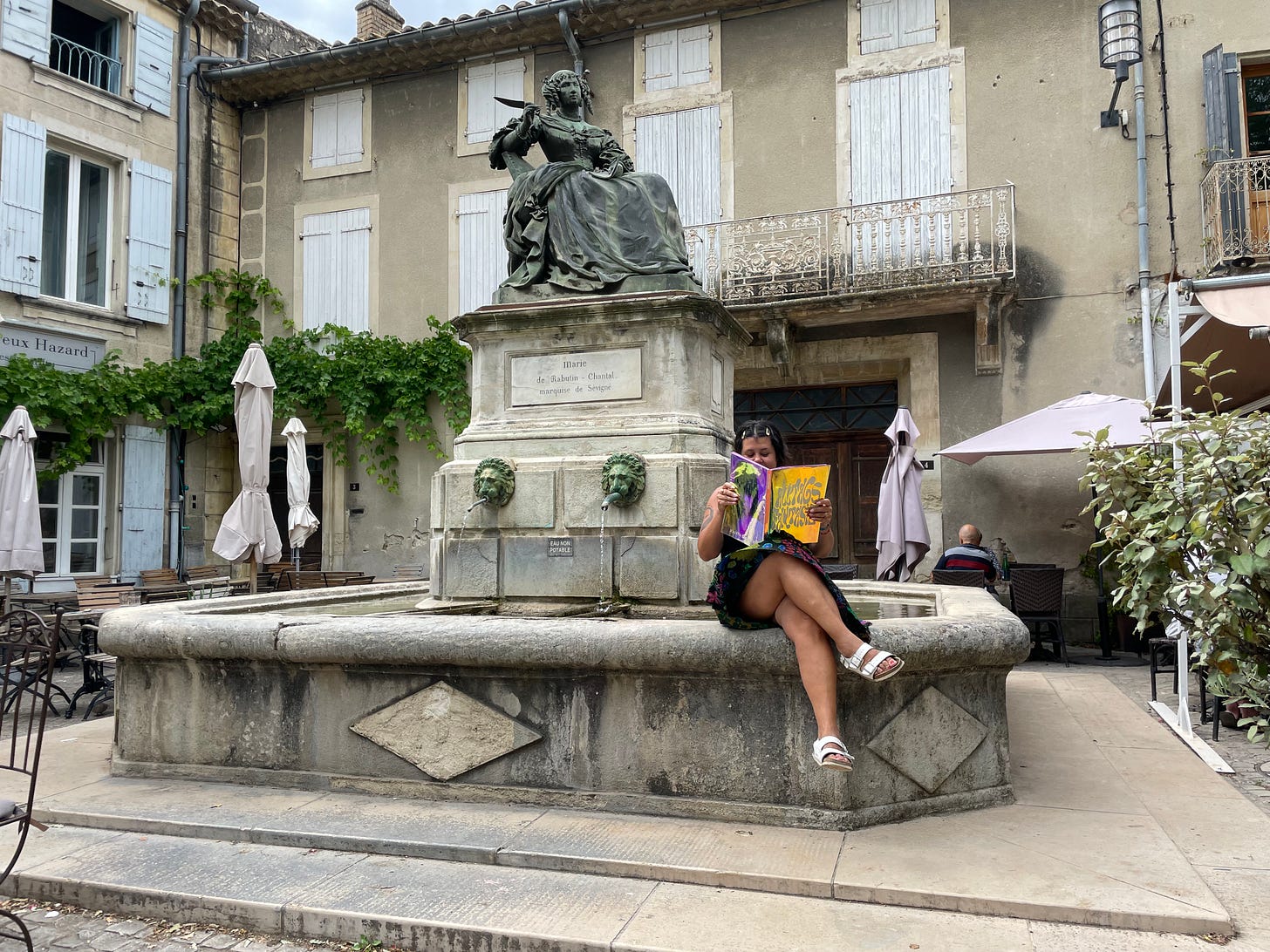
I discussed this with my esteemed printer from Turkey, who agrees that maintaining objectivity and focus on quality becomes increasingly challenging when political issues blur the lines. While my book may not win as many awards as I would like, it receives excellent feedback from reviewers and curators at the festival. For me, it represents a triumph in its own right, regardless of the reception. Another colleague published under my publisher’s umbrella noted that perhaps 90% of those who try will never succeed. Given that contemporary art often borders on propaganda, I appreciate those who recognize the timeless value that might be unpopular. One buyer, who attended my signing, was a dad who purchased Alltagsfantasie for his daughter. For him, Alltagsfantasie represents a profound psychoanalytical work, and for me, it’s the best synthesis I’ve received so far.
Everything has become so political, and everyone is so opinionated. Big Brother is always watching; you can't even make a joke without risking political incorrectness or cancellation. A Canadian photographer living in New York told me about his friend, the director of the Canadian Indigenous Art Centre, who struggles with the challenges of working with artists. It’s difficult to navigate issues of authenticity and representation, especially when determining who qualifies as Indigenous—whether it's those with 100% Indigenous ancestry or just 1/16. What defines Indigenous identity? Is it tied to native trauma, cultural celebration, or perhaps a form of genetic recognition?
Reflecting on the political nature of discussions and the risk of being canceled for controversial views, I also participated in an Arles portfolio review to pitch my exhibition idea. I’m seeking institutions and curators who will embrace my vision of transforming Alltagsfantasie into a multi-sensory installation. I introduced myself as someone born during the twilight of the communist era, which shaped my commitment to individualism. I hope this won’t be interpreted as a stance in favor of social Darwinism.
In reality, I support diversity—acknowledging that people are different yet equal. We should strive to fulfill our potential and contribute to society, but this doesn’t mean everyone needs to achieve the same outcome. We all have different needs and preferences, and we should support each other’s diverse choices. Wanting to achieve something isn’t necessarily a neo-liberal imposition; it can be a path to emancipation. True progress should be sustainable and human-centered, like the quality of my dad’s first Sony Walkman, which has been working for nearly 40 years. This exemplifies how well-designed consumer goods can foster long-term growth and sustainability. While healthy competition can drive innovation, our current system often prioritizes quantity over quality.
A German artist friend suggested we should focus more on collaboration and mutual support. We should strive for excellence, play fair, and leverage our unique strengths to benefit society. However, in communal work, I often see people avoiding their share of responsibility. Everyone wants to collaborate, but no one wants to clean up their mess. "Love truth, but pardon error." Creating quality work requires effort, risk-taking, freedom to make mistakes, and accountability. We must avoid the trap of neoliberal self-optimization, resist the gig economy, and not become mere operators of tools. David Graeber noted that autocratic regulations stifle innovation, but in communal work, some avoid responsibility, expecting that group participation alone will suffice.
Later, as I was heading home, I spoke with an Irishman in the Forum Plaza about colonization and how history is written by the victors. Following his national story, he argued that conflicts should be resolved by those directly involved, not outsiders. It's striking how we champion peace and diversity while failing to tolerate differing perspectives in our backyard. Or is it possible that people in power manipulate our prejudices to divide and conquer? Maybe we should start talking to each other no matter what? It’s worth noting that wokism has roots in Silicon Valley, something I’ve touched upon from a psychoanalytical perspective. This moral policing bears a resemblance to past inquisitions.
During our discussion about Italy's new law allowing American expats to work remotely in European villages, a charming American man with an Indiana Jones-style hat joined us. It felt like synchronicity. He shared that his midlife crisis and divorce led him to travel to Europe, and he planned to buy a house in Tuscany and retire there soon (he was my age!). We assumed he hadn’t heard our conversation, yet he seemed to be defending himself from questions he expected us to ask. Why would he choose to stay in the most expensive country, working until his last day to pay multiple times more for rent, when he could move to Europe and live off the money his art is already generating?
I don’t want to judge his choice—everyone should decide according to their conscience. However, it does feel a bit unfair because the taxes from his earned money will go back to the States, and we know what this kind of remote working does to the local infrastructure. Those places become more popular for his fellow Americans, they come, the rent is going up and local people cannot afford it anymore. I could judge him and play morally superior, but to be honest, I am also considering moving elsewhere since the place where I currently reside, Berlin doesn’t feel the same anymore. Authentic, creative, and cheap.
This weird American colonial attitude reminds me of Berlin, where some wealthy kids from the USA came to gain experience in the rough and raw environment, creating art they would later sell at Miami art fairs. I remember an incident at a fancy American bohemian event where I offered to take backstage photos voluntarily to network. Someone from the crew just ripped up my card in front of my daughter who accompanied me. It was one of the most humiliating situations I've experienced, personally and professionally, especially because my daughter witnessed it. Perhaps I should never have offered my services for free, as it seems to make people automatically think of you as a slave. Should I justify it, though?
The injustice is that they were coming to Berlin because life used to be cheap (so also affordable to me, an immigrant from the East). Yet, they drove the prices up, and sadly, Berlin is not the same anymore. They gained experience, monetized it, and now the city they used can be trashed. They’re already looking for another place. Meanwhile, I’m here, a second-class East Bloc citizen, working hard to achieve a fraction of their possibilities. It's not a matter of evaluation. If you don't want to see someone's expertise, no matter what, your bias will influence your perception. So still Americans in Germany are on the pedestal while Eastern Europeans (including DDR) still have to prove themselves with overperformance (do not forget that Berlin is supposedly leftist).
Another thing I paid attention to was “Indiana Jones’s” charismatic, preaching style. He came across as a hypnotizer, which may have something to do with his origin. I’ve certainly observed this among men. Using catchy phrasing and fast wording, combined with a sense of superiority and entitlement, he could convince you before you started thinking critically. He was babbling about bringing some mission to his new Italian community as if he were a prophet, and he said that he had acquired the wisdom that “Beliefs make facts”. I’m sorry if I seem contemptuous, but I’m allergic to such conceit. He did not discover America, as he appeared to think. I immediately addressed his cryptic language. "Well," I said, "you mean we are living through made-up constructs that motivate our actions."
The next day, the Irish photographer introduced me to another group of people, his friends from his American publisher's network, including the publisher himself. We joked a lot, and I realized there are Americans who are kind, recognize their advantages, and are even open to learning foreign languages, as well as men who are aware of their male privilege and actively checking on it. There, I also met a female artist, writer, and photographer born in India who lived for years in New York and now moved to Europe. We all went for a drink.
The Indian woman shared that many in India still appreciate their former colonizers, reflecting a complex view rather than a justification of British atrocities. From the Indian perspective, there is gratitude for the civilization and improvements brought by the British, such as advancements in clothing like blouses and underwear, which improved comfort and hygiene. Western ideas have also influenced gender equality in India, though it hasn't reached the same level as in the West. Discussing feminism and sexuality, we explored how modern values—rooted in Abrahamic and Catholic traditions—have shaped our understanding. Before these values gained prominence, Eastern societies were way more kinky (Kamasutra and so on…;).
She also shared her experience where, after watching a sport together, a male friend interpreted it as an invitation for sex. She saw this as a sign of naivety on her part. I questioned why men often center themselves and project that everything is about sex, even something so simple as watching a sport. I reassured her that women shouldn’t blame themselves for such misunderstandings. Instead, the focus should be on male accountability. Both men and women have a frontal cortex that, when mature, helps regulate limbic (our animal part of the brain) impulses. Men need to understand that not every kind of gesture is a flirtation as well as to believe our “NO”. Male projection is male responsibility.
This issue goes beyond inherent drives; it comes from rape culture that centers on male entitlement and assumes everything revolves around their satisfaction. We reflected on maturity and relationships, my attraction to younger men, and my current practice of voluntary celibacy. Emotional maturity, I believe, doesn’t necessarily correlate with age (after age 25 human frontal cortex is fully formed), but rather self-awareness. Some men possess what I call masculine sensuality, while others lack not only maturity but are too lazy to deconstruct outdated stereotypes. They view women as mere instruments for their gratification. I’m consciously abstaining from dissatisfying sex and chasing my dreams. Before opening up to someone, I want to ensure that we are on equal footing.
This introspection was prompted by an experience early in my trip to Italy, which highlighted important lessons about attraction and boundaries. I met a younger man—nearly 15 years my junior. Despite his attractiveness, when we started kissing, I clearly stated that I didn’t want to go any further. Regardless of my explicit "NO," he tried to persuade me otherwise, which only made me more disinterested. Meeting my needs is my kink, and it ensures reciprocity. As I heal, I’m better able to recognize genuine intimacy and connection. Every sex, including casual, should be symmetrical.
While discussing this, one man candidly admitted that he finds many men emotionally retarded, speculating this might be linked to a drive to spread genetic material. However, this theory seems outdated, as it implies only men would want to participate in spreading genes. Although the genetic purpose of life is reproduction, recent science shows that women increasingly have the ultimate say in reproductive selection, a trend gaining prominence in our species and others. Additionally, the clitoris, part of the reproductive anatomy, enhances sexual pleasure, motivating encounters that contribute to reproductive success regardless of orgasm. Reproduction is key to evolutionary success, as societies with higher birth rates have a greater chance of passing on their genes. Genes succeed by being effective replicators, and this principle also applies to cultural knowledge, which thrives by being well-replicated and transmitted across generations.
After reflecting on my journey, I’m inspired by the Mediterranean Mother Mary cult and recognize how the cult of the cross replaced it. Guilt has overshadowed the life-affirming force once revered in feminine figures. The origins of the Mary cult in matriarchal pagan traditions from Egypt and ancient Greece, as well as Slavic mythology, have been colonized and instrumentalized by the Church to impose its prudish doctrine and control female sexuality. This patriarchal paradigm, which defines masculinity through the isolation of sexual pleasure and reproduction, has historically obscured the creative and affirming aspects of femininity.
Writing my Alres chronicles under the full moon, I drew a tarot card, "L'Impératrice" (The Empress). I interpret this card as symbolizing the feminine as a patron of creation. I feel empowered to find the balance and harmony between reason and feeling. Embracing life’s inherent ambivalence and ambiguity, and navigating through random encounters and synchronicities, are integral to thriving in our existence and celebrating the brightness and different flavors of colors.
The artistic highlight of my visit to Arles was Sophie Calle’s exhibition, which deeply moved and inspired me. Calle's work, though exploring darker themes, embraces the role of uncontrollable in the creative process. Her approach, finding meaning in the accidental and ambiguous, gives her art an organic and unpredictable quality. Much like cellular environments, where purposeful solutions arise from seemingly disorderly processes, Calle's work shows how profound outcomes can emerge from accidents. Calle’s exploration of sorrow delves into uncomfortable truths, probing deeply into the darker facets of human experience.
Yet, I am drawn to seek out the bright and colorful aspects of life. Inspired by Calle, I am now even more committed to working interdisciplinary and indulging in my subliminal synaesthesia. Although photography remains my core medium, I am experimenting with text and voice, intersecting with multisensory installations to explore intimacy, complexity, and hidden layers of feeling. By celebrating randomness and embracing the interconnectedness and resonance of beings, I aim to highlight the miraculous aspects of our existence on Mother Earth. This shows how we're all connected and can find wonder in the colorful fraternity of our shared experiences.
I believe in rationality but don't see it as contradictory to adopt a more spiritual approach. I am agnostic and let my imagination explore beyond the limits of our current wisdom, aiming to debunk outdated biases that hinder progress. For instance, with sexuality and its symbolism, I find the study of psychoanalysis and gestalt fascinating yet needing to be updated from a female perspective. These approaches and empirical methods can reveal underlying laws and patterns. I am committed to remaining open to diverse perspectives that may contribute to discovering new evidence and insights. We still can’t fully explain, for instance, how the placebo effect works. Philosophy and research progress through novel hypotheses and ideas, and I am eager to explore new paths in this ongoing quest for understanding.
Voltaire's insight, “Those who can make you believe absurdities can make you commit atrocities,” serves as a crucial reminder to think critically and independently. I feel the need to seek out new solutions to avoid centralized institutions’ and corporations’ biases, which may manipulate our actions in service of those in power. Because beliefs inform actions. It's essential to prioritize integrity over rhetoric. Genuine progress requires meaningful engagement and a commitment to real change, rather than merely following trends or aligning with popular group affiliations. I still believe in the idea that the personal is political but I’d rather be careful to prevent my voice from becoming a tool of propaganda.






